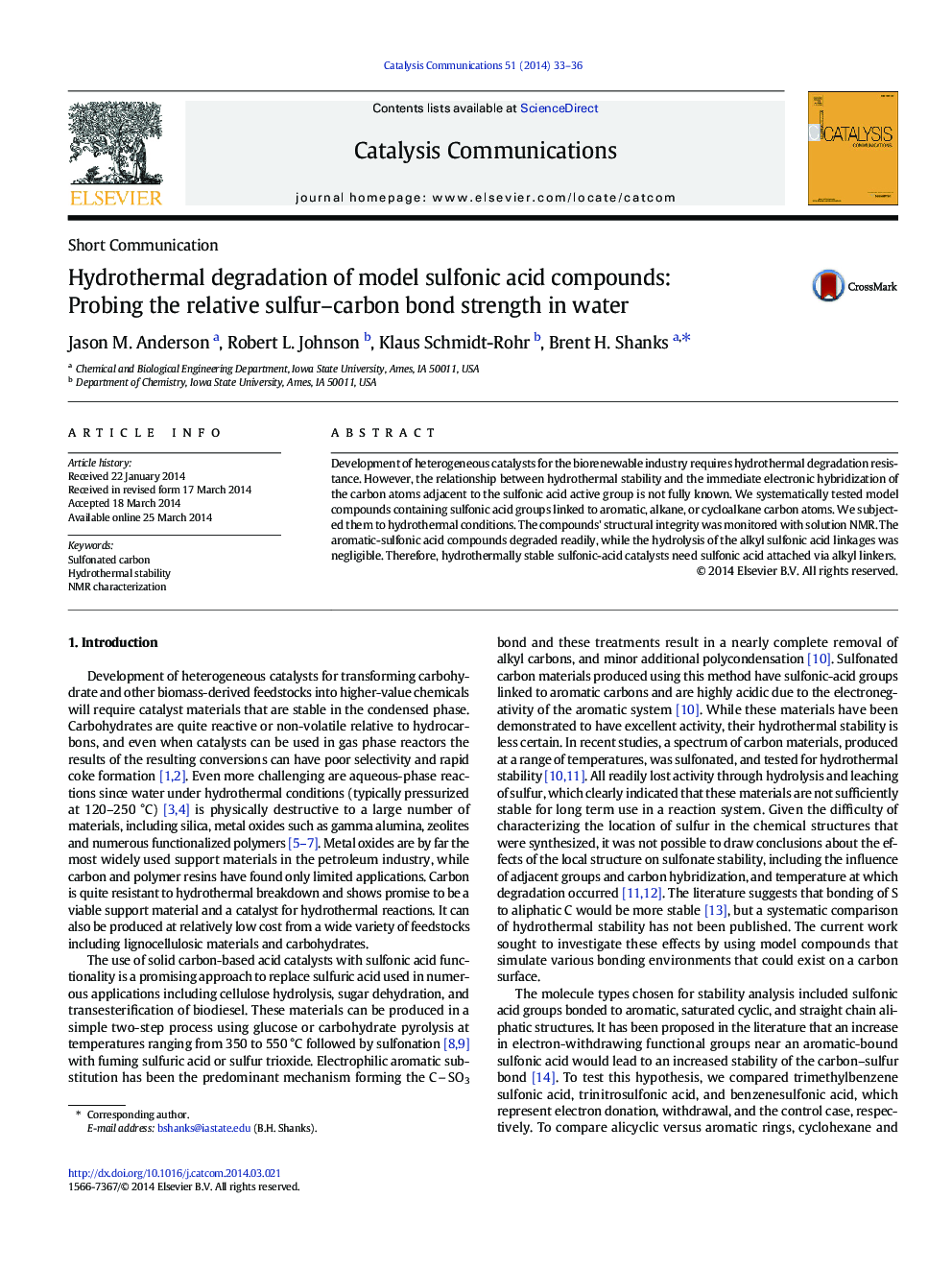| Article ID | Journal | Published Year | Pages | File Type |
|---|---|---|---|---|
| 49603 | Catalysis Communications | 2014 | 4 Pages |
•Sulfonic acid compounds were hydrothermally stable at 100 °C.•At 130 °C, substituted aromatic compounds degraded.•Non-substituted benzene sulfonic acid degraded after 24 h at 160 °C.•Alkyl sulfonic acids had superior hydrothermal stability.
Development of heterogeneous catalysts for the biorenewable industry requires hydrothermal degradation resistance. However, the relationship between hydrothermal stability and the immediate electronic hybridization of the carbon atoms adjacent to the sulfonic acid active group is not fully known. We systematically tested model compounds containing sulfonic acid groups linked to aromatic, alkane, or cycloalkane carbon atoms. We subjected them to hydrothermal conditions. The compounds' structural integrity was monitored with solution NMR. The aromatic-sulfonic acid compounds degraded readily, while the hydrolysis of the alkyl sulfonic acid linkages was negligible. Therefore, hydrothermally stable sulfonic-acid catalysts need sulfonic acid attached via alkyl linkers.
